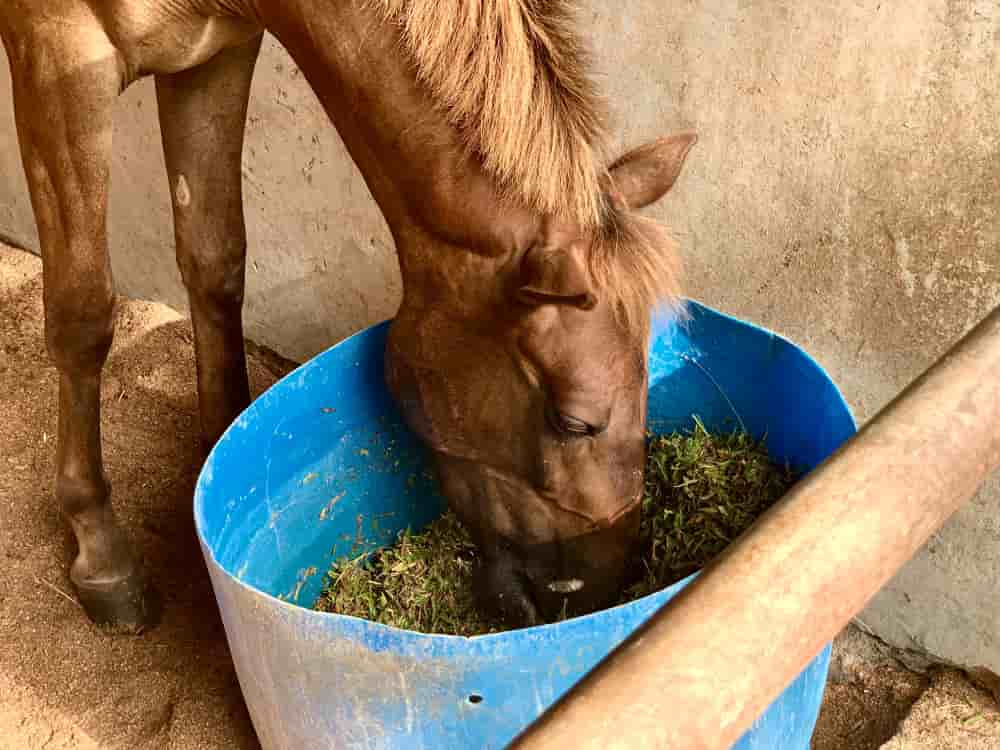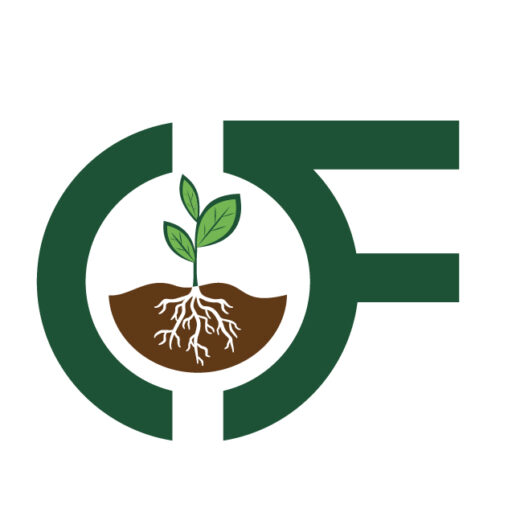Hay for Small-Scale Farms: Budget-Friendly Solutions for Quality Feed
For small-scale farms, providing quality feed for livestock is essential, but it can often feel like a balancing act between maintaining a budget and ensuring the nutritional needs of animals are met. These farms, often characterized by limited space and a smaller number of animals, require unique solutions tailored to their specific circumstances. At Ohana Farms, we understand these challenges and are here to provide guidance and support for small-scale farmers looking for cost-effective and high-quality hay options.

(Brown horse has hay breakfast.)
Understanding the Needs of Small-Scale Farms
Small-scale farms come in many forms, ranging from backyard operations to hobby farms and community-supported agriculture (CSA) setups. Their defining trait is their size, which often translates to limited resources, including storage space, land for growing feed, and financial budgets. Livestock on these farms might include a few horses, goats, sheep, or chickens, all of which have specific dietary requirements that must be met to ensure their health and productivity.
When it comes to feeding livestock on small-scale farms, several considerations come into play. Space constraints mean that hay storage needs to be efficient, and purchasing smaller quantities might be necessary. Additionally, small-scale farmers often seek to minimize waste by sourcing hay that aligns with their animals’ nutritional needs. For those searching online for “small-scale farming” solutions, finding a reliable hay supplier is a key step toward success.
How Much Hay Does Your Small-Scale Farm Need?
Determining the amount of hay required for your small-scale farm depends on the type and number of animals you have. For example, horses generally consume about 1.5–2% of their body weight in forage daily, while goats and sheep may need roughly 4% of their body weight. Chickens, on the other hand, require minimal hay but can benefit from straw or other bedding materials.
Here’s a simple formula to calculate hay needs:
- Estimate your animal’s weight.
- Multiply the weight by the percentage of forage required daily.
- Multiply the daily requirement by the number of days in the feeding period.
For example, a 1,000-pound horse needing 2% of its body weight in hay would require 20 pounds of hay daily. Over a 90-day winter feeding period, that’s approximately 1,800 pounds, or about 9 small square bales of hay.
Understanding these numbers can help you plan your hay purchases more effectively and avoid overstocking, which is especially important for farms with limited storage space.
Budget-Friendly Options for Quality Hay
Balancing quality and cost is a common challenge for small-scale farmers. Thankfully, there are several strategies to help you find affordable hay without compromising on nutrition:
1. Buy Locally
Purchasing hay from local farms reduces transportation costs and often results in fresher products. Searching for “farms near me that sell hay” can connect you with nearby suppliers like Ohana Farms, where quality and affordability go hand in hand.
2. Purchase in Bulk with Others
If storage space allows, consider teaming up with neighboring farmers to buy hay in bulk. Bulk purchases often come with discounts, making it a cost-effective solution for everyone involved.
3. Opt for Second-Cut Hay
Second-cut hay is often less expensive than first-cut but still provides excellent nutrition for many types of livestock. Discuss your options with your supplier to ensure the hay meets your animals’ needs.
4. Test Before You Buy
Requesting a hay analysis or purchasing a small sample before committing to a larger order can save you money in the long run. High-quality hay ensures your animals receive adequate nutrition, reducing the need for additional supplements.
5. Invest in Efficient Storage
Proper storage protects your hay from spoilage, mold, and pests. Use tarps, hay sheds, or other covered structures to keep your investment safe and extend its shelf life.
The Role of Quality in Small-Scale Farming
While it might be tempting to prioritize cost over quality, the health and productivity of your livestock depend on the nutritional value of their feed. Poor-quality hay can lead to health issues, reduced growth rates, and lower productivity, ultimately costing more in veterinary bills and supplements. Investing in tested and reliable hay, like the products offered at Ohana Farms, ensures that your animals remain healthy and productive.
Moreover, sourcing high-quality hay demonstrates a commitment to ethical farming practices, which can enhance the reputation of your small-scale operation. For those involved in community-supported agriculture or direct-to-consumer sales, this commitment can also improve customer trust and loyalty.
Why Choose Ohana Farms for Your Hay Needs?
At Ohana Farms, we’re dedicated to supporting small-scale farms by offering hay solutions tailored to your unique needs. Here’s why farmers trust us:
- Premium Quality: Every bale is carefully tested to ensure it meets the highest nutritional standards.
- Flexible Quantities: We understand the space constraints of small-scale farms and offer customizable order sizes.
- Expert Guidance: Our team is always available to provide advice on hay selection, storage, and feeding practices.
- Local Accessibility: For those in the area, our farm is a trusted destination for “small-scale farming” solutions that prioritize quality and affordability.
Whether you need a few bales or a tailored feeding plan, Ohana Farms is here to help you succeed.
Practical Tips for Small-Scale Farmers
For small-scale farmers looking to optimize their hay use and budget, consider these additional tips:
- Rotate Grazing Areas: Proper pasture management reduces reliance on purchased hay.
- Minimize Waste: Use hay feeders to prevent animals from trampling and spoiling feed.
- Plan Ahead: Purchasing hay during peak harvest seasons can save money and ensure availability.
- Diversify Feed Sources: Incorporate other forages, such as silage or alfalfa pellets, to supplement your hay supply.
By implementing these strategies, you can make the most of your resources and keep your animals healthy and happy.
Conclusion
Running a small-scale farm comes with its unique set of challenges, but with the right strategies and resources, you can provide your livestock with quality feed without breaking the bank. Understanding your animals’ hay requirements, sourcing budget-friendly options, and prioritizing quality are all key steps to success.
At Ohana Farms, we’re committed to helping small-scale farmers thrive. Whether you’re searching for “small-scale farms” solutions or need expert advice on hay selection, we’re here to support you every step of the way. Contact us today to learn more about our hay products and services designed specifically for small-scale operations.

